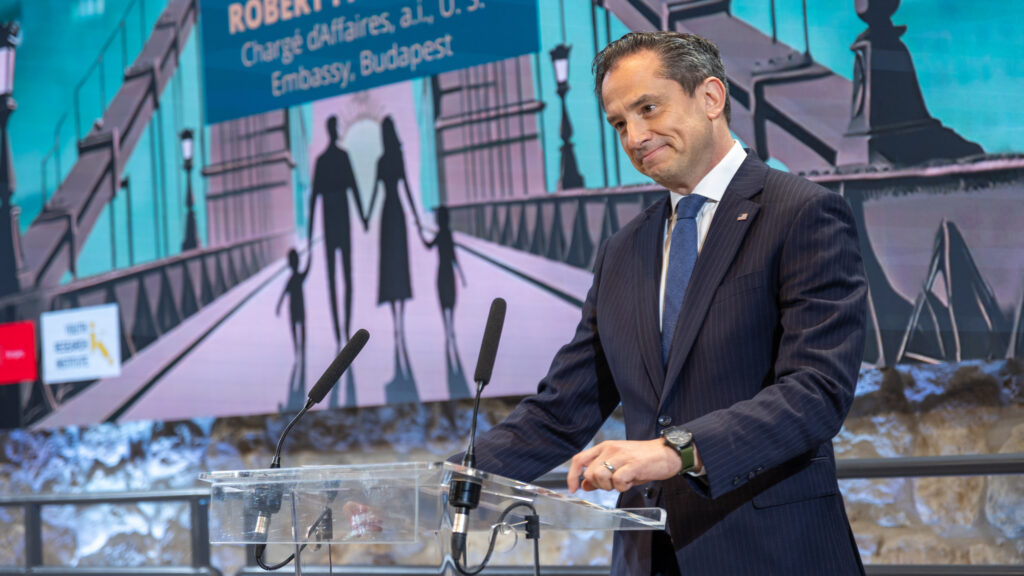A joint ‘investigative’ report published by the Hungarian opposition outlet Direkt36 and the Belgian newspaper De Tijd has accused the Hungarian Intelligence Office (IO)—Hungary’s equivalent of the CIA—of ‘surveillance and espionage’ targeting employees of EU agencies, including the European Anti-Fraud Office (OLAF), during their visits to Hungary.
The article, citing anonymous sources who claim to be familiar with the case, alleges that between 2015 and 2017, the Intelligence Office (IO) monitored and intercepted communications of OLAF officials investigating Hungary. According to multiple sources within the intelligence community, the IO began dedicating increasing resources to spying on EU institutions, which were already critical of certain policies of the Hungarian government. Reportedly, a dedicated department within the IO was established for this purpose.
One of the most common methods involved collecting information through Hungarian citizens working in EU institutions—either with their cooperation or, in some cases, unknowingly, through surveillance.
OLAF conducted several missions in Hungary to gather information regarding public lighting tenders involving EU funds. The projects in question were carried out by the Elios company, owned, partially owned or headed by István Tiborcz, Viktor Orbán’s son-in-law until 2015. Opposition media in Hungary reported numerous alleged irregularities about the tenders. OLAF’s investigation was partly based on these reports, which were clearly aimed at undermining the government—a government that had been democratically elected with overwhelming support on multiple occasions.
Protecting Hungary’s Economic Interests
But let’s also examine the role of the Intelligence Office. The IO is a civilian intelligence service tasked with gathering foreign intelligence necessary for government decisions, and engages in activities that serve the security of the country and the enforcing of its interests. According to the National Security Services Act of 1995, the IO’s mission is also ‘to detect foreign intentions and actions aimed at threatening the economic security and financial stability of the country’.
It is worth noting that OLAF concluded its investigation by recommending the withdrawal of 13 billion HUF of EU funding from Hungary due to the ‘irregularities’ it claimed to have uncovered.
In recent years, the withdrawal of EU funds has become Brussels’ primary tool for exerting pressure on Hungary. This is largely because the Hungarian government prioritizes the country’s sovereignty and national interests over conforming to Brussels’ expectations. On key issues such as migration, LGBTQ and gender propaganda, child protection, and, most recently, the war in Ukraine, Hungary’s positions stand in stark opposition to those of the EU—much to the displeasure of Brussels bureaucrats.
‘The IO’s mission is also ‘to detect foreign intentions and actions aimed at threatening the security and situation of the country’s economy’
This tension has escalated to the point where it appears increasingly evident that Brussels seeks to destabilize the Hungarian government and replace it with a compliant administration that fully aligns with their interests.
With Friends Like This, Who Needs Enemies?
Based on this, it is evident that the international network—of which Direkt36 and De Tijd are integral part of—that consistently criticizes the Hungarian government is essentially accusing the Intelligence Office of doing its job, however absurd that sounds. The true aim of the Brussels-led agencies has long been not to uncover the truth, but to weaken the Hungarian government and ultimately bring it down.
A particularly ironic part of the so-called ‘investigation’ report features an EU official lamenting a ‘hostile environment’ in Hungary. ‘An EU member state is supposed to be a normally friendly environment. The system is not prepared for what happens when a member state becomes a hostile environment,’ the official remarked.
Ideally, cooperation between EU institutions and Member States should indeed be based on mutual respect and friendliness. However, the EU institutions have long ceased to view the Hungarian government as an ally—not because of its actions or intentions, but because Brussels cannot tolerate independent, sovereignist politics within its member states.
‘However, the EU institutions have long ceased to view the Hungarian government as an ally’
The extent of the EU’s ‘friendliness’ toward the Hungarian government was starkly illustrated during the October European Parliament plenary session. While Hungarian Prime Minister Viktor Orbán presented the priorities of Hungary’s EU Presidency, the session quickly devolved into political mud-slinging. Mainstream political forces, spearheaded by European Commission President Ursula von der Leyen, launched attacks on Orbán, recycling left-wing propaganda and baseless accusations.
After all this, it is almost redundant to point out that Direkt36 has been funded for years by organizations backed by Hungarian-born American billionaire George Soros. Szabolcs Panyi, one of the article’s authors, has also received the Transparency International award, which is financed by the billionaire speculator. Additionally, Soros was once a regular contributor to the opinion columns of De Tijd.
The network pattern is unmistakable, and they make no effort to conceal it, neither their goal: to overthrow the Hungarian government, regardless of the means employed.
Hungarian Conservative has reached out to the Information Office regarding the case and will update this article as soon as a response is received. Meanwhile, POLITICO contacted Bertalan Havasi, the press chief for PM Orbán’s office, who stated: ‘We are not dealing with fake news reports.’
Related articles:








